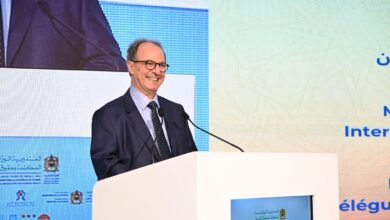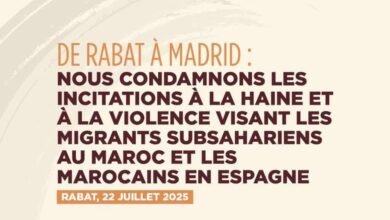Empowering Moroccan Women: Roundtable Sparks Vision for Inclusive Leadership

In a climate of growing national and global awareness about the power and necessity of women’s leadership, Morocco is stepping forward with a bold initiative. On Thursday evening, May 15, 2025, the capital city of Rabat hosted a high-level roundtable organized by the Federation of Business and Professional Women Morocco (BPW Maroc), under the theme: “Towards Influential Women’s Leadership: For Economic Inclusion and Real Access to Decision-Making Positions in Morocco.”
Held at the Rabat Chamber of Commerce, this roundtable was not just a meeting—it was a strategic platform for ideas, partnerships, and concrete solutions. It brought together prominent female leaders, policymakers, institutional actors, and experts to explore how to strengthen women’s presence in leadership roles and ensure their active contribution to Morocco’s social and economic development.

From Dialogue to Strategy: A Call to Action
In her powerful opening speech, Fatiha Othman, President of BPW Maroc, emphasized that empowering women in leadership is no longer a symbolic gesture—it is a strategic imperative. “This isn’t only a rights issue. Women’s leadership ensures more balanced, sustainable, and inclusive policy outcomes,” she stated.

Othman stressed that Moroccan women, empowered by years of cumulative experience and capacity building, are already key players in the country’s development. She cited progressive legal reforms and public policies—driven by a royal vision of equality—as foundational in laying the groundwork for structural inclusion.
“Women, when given the space to lead, reshape priorities in ways that are inclusive and far-sighted,” she added. The roundtable, she insisted, should not end in discussion but evolve into a platform for action—producing applicable, measurable recommendations aligned with the kingdom’s development agenda.
Green Leadership: Linking Gender and Sustainability
One of the standout voices during the session was Dr. Nezha El Ouafi, former Secretary of State for Sustainable Development. Her intervention spotlighted a pressing global concern: the environmental crisis and the essential role of women in leading the transition to a green and circular economy.
“Our ecological challenges demand conscious leadership—and women, particularly in rural, have the practical knowledge and social sensitivity to lead this shift,” she said.
El Ouafi argued that environmental justice must go hand in hand with economic and social equity, noting that empowering women in environmental governance isn’t just about rights, but about successful outcomes. She advocated for a participatory, transformative model of leadership that values women’s lived experiences—especially in managing scarcity and navigating crises.
She emphasized the importance of structural reforms: training, financing, and the integration of gender perspectives into environmental policy. “Women have already proven their capacity to lead green initiatives. Now we must invest in them deliberately,” she concluded.
Bridging Gaps: Practical Challenges and Proposals
Throughout the session, participants engaged in deep, constructive dialogue about the systemic barriers facing Moroccan women—ranging from limited access to capital to persistent stereotypes that restrict their advancement. They highlighted the need for: Institutional reforms to ensure equitable representation, clear frameworks for gender budgeting, targeted support for women-led green entrepreneurship, integration of women into regional development roadmaps.
The roundtable also featured success stories from women in leadership, offering practical inspiration and concrete models that can be replicated across regions.
Toward a New Development Model
This event is part of a broader movement to align Morocco’s governance with its new development model, which places inclusive growth and equity at its core. Participants called for converting recommendations into executable action plans, backed by policy commitments and sustained funding.
As the discussions drew to a close, a shared vision emerged: Moroccan women must not just participate in national development—they must drive it. Their full integration into economic, social, and environmental leadership will be key to shaping a resilient, just, and forward-thinking Morocco.
From the halls of the Rabat Chamber of Commerce echoed a renewed message of commitment. The future of leadership in Morocco is undeniably female—and the path to that future is paved with vision, action, and collective will.





